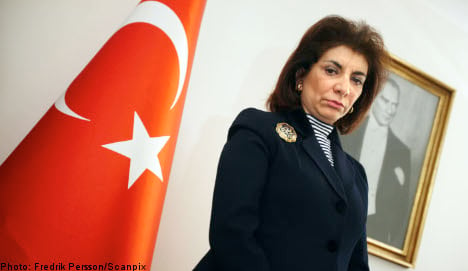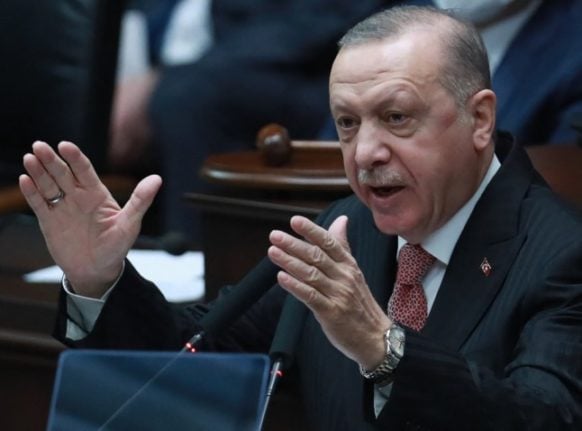“They will naturally express regret over the parliament’s decision and present their own view on the issue,” said Christer Asp to news agency TT.
Asp explained that the issue, widely referred to as the 1915 Genocide or the Armenian Genocide, is one of the most sensitive subjects in contemporary Turkey and he argued that the vote will affect Sweden’s diplomatic and business relations with the country.
“There is naturally a risk for consequences even within trade relations. Naturally we shall work to try to ensure that this does not happen,” Asp said.
The Swedish parliament’s decision to recognize the killings as genocide has been widely reported in Turkey and all of the major television channels carried the news as their main item on Thursday – with several broadcasting direct from Stockholm.
Though the motion to recognize the genocide of Armenians and other ethnic groups – Chaldeans, Syrians, Assyrians and Pontian Greeks – had the backing of members of five of the seven Swedish parliamentary parties, the vote’s outcome was uncertain to the last as the Parliamentary Committee on Foreign Affairs had recommended its rejection.
But with four centre-right politicians ignoring the recommendation and choosing to vote with the opposition, the resolution was eventually passed by a single vote.
Turkey immediately elected to recall its ambassador to Sweden, Zergün Korutürk, who said she was “very, very disappointed” by the vote.
“I’m disappointed and somewhat surprised because I expected the parliament to adopt the normal position that it is not the job of parliamentarians to decide whether or not a genocide has taken place.
“That is a question for historians, and for researchers to examine before reaching a conclusion,” she told news agency TT.
Zergün Korutürk added that Sweden and Turkey had enjoyed excellent relations over the last decade but that this was now certain to change.
“Everything is going to regress. This is going to have a drastic impact on our bilateral relations,” she said.
Turkey’s Prime Minister Recep Tayyip Erdogan said in a statement on his homepage on Thursday that he was cancelling a planned trip to Sweden on March 17th in response to the parliament’s decision.
Sweden’s Minister for Foreign Affairs Carl Bildt issued a statement after the vote expressing regret over the parliament’s decision and underlining that it did not reflect government policy.
“The Government worked actively to make this clear to the Riksdag before the debate in the Chamber, as on previous occasions when the issue has been raised,” he said.
Bildt argued that the vote would “not make a positive contribution to the ongoing process of normalisation between Turkey and Armenia” and referred to the commission charged with investigating the events in 1915.
“Moreover, the decision will not help the debate in Turkey, which has become increasingly open and tolerant as Turkey has developed closer relations with the European Union and made the democratic reforms these entail,” the minister said.
Speaking to The Local prior to the vote, Left Party foreign policy spokesperson Hans Linde expressed his view that the time had come for Sweden to take a stand on the issue.
“Firstly, to hinder any repeat and to learn from history. Secondly, to encourage the development of democracy in Turkey – which includes dealing with their own history. Thirdly, to redress the wrongs committed against the victims and their descendants,” Linde said.
The foreign affairs committee, in its comments on the motion, had argued for an open debate on the issue. It also stated that the persecution of the Armenians and other ethnic groups in 1915 would have constituted genocide according to the definition adopted by the United Nations in its 1948 genocide convention if it “had it been in force at the time.”
But the committee stated that it does not consider it parliament’s role to rule on human rights issues and that this should instead be addressed by “open research, open access to facts, and free debate.”
According to Sweden’s Living History Forum, most researchers are now in agreement that the massacres constituted genocide according to the accepted 1948 UN definition. The exception to this is Turkish researchers. The Turkish government has never recognized the events as a genocide and it is illegal in Turkey to claim that it occurred.
The Living History Forum is a Swedish public authority which works with issues on tolerance, democracy and human rights from both a national and international perspective.



 Please whitelist us to continue reading.
Please whitelist us to continue reading.
Member comments